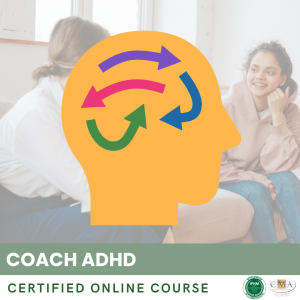The sexual practices and eroticism of LGBTQ+ individuals are diverse and not limited to heteronormative and cisnormative scripts. It is crucial to have an understanding and open mind towards this diversity to be able to support LGBTQ+ individuals in their sexual fulfillment in a compassionate and nonjudgmental manner.
Among the common sexual practices within LGBTQ+ communities, we may mention for example:
– Oral sex, which often plays a central role, especially in relationships between women or between men. Cunnilingus, anilingus, and fellatio are all widespread and valued practices.
– Anal penetration, with fingers, a sex toy, or a penis, is a frequent practice in relationships between men, but not only. Many LGBTQ+ individuals, regardless of their anatomy, explore and enjoy anal stimulation.
– The use of sex toys (dildos, vibrators, harnesses, etc.) is very common, whether alone or with partners. They allow to amplify the pleasure possibilities and to go beyond physical limitations.
– Erotic massages and sensual touches on the whole body are also highly appreciated. Eroticism is not limited to the genital areas and many LGBTQ+ individuals enjoy exploring all erogenous zones.
– Role-playing games, erotic cross-dressing, or BDSM are practices explored by some LGBTQ+ individuals, allowing to eroticize gender identities and power relationships.
Beyond the practices themselves, it is above all creativity, communication and consent that are emphasized in a fulfilled queer sexuality. It’s about freeing oneself from ready-made scripts to create one’s own, based on desires, personal boundaries and those of the partner(s).
This implies being able to speak openly about sex, in a detailed and explicit manner, without taboo or shame. Communication is key to ensuring that everyone is comfortable with what is happening, to express desires, to adjust practices according to sensations.
This also implies paying particular attention to consent, which must be clear, enthusiastic, and revocable at any time. In LGBTQ+ circles, consent is often viewed as an ongoing process and not as a certainty. Everyone is encouraged to listen to their sensations, to respect their boundaries and those of others.
Queer eroticism often also emphasizes shared pleasure and reciprocity, rather than performance or orgasm at any cost. It’s about taking time, exploring, discovering what feels good to oneself and the other, without pressure or injunction.
Finally, queer eroticism often tends to be subversive and political. By breaking away from norms and taboos, asserting the right to pleasure and to self-determination, it contributes to challenging the heteropatriarchal system and the oppressions that flow from it.
As a coach, it is crucial to be aware of this political dimension of sexuality, while respecting the choices and paths of everyone. It’s not about imposing a single vision of the “right” queer eroticism, but about supporting individuals in exploring their own eroticism, in line with their values and desires.
This can be achieved through different approaches:
– Creating a safe and compassionate space to talk about sex, without judgment or presumption. Using inclusive and non-gendered vocabulary, asking the person what words they prefer to use to talk about their body and practices.
– Informing in a positive and non-moralistic way about different practices, their advantages and possible risks. Providing resources to deeper understand the subject if the person so desires (books, websites, workshops, etc.).
– Exploring with the person what slows or blocks them in their sexual fulfillment. Working on shame, fears, limiting beliefs inherited from a sex-negative education.
– Encouraging self-exploration and self-awareness. Offering body-scan exercises, breathing, visualization, to reconnect to bodily sensations and sexual energy.
– Providing practical tools of communication and negotiation with a partner. Practicing through role-play the expression of desires, boundaries, the giving and obtaining of clear and explicit consent.
– Helping the person to identify their own erotic scripts, their fantasies, what excites them and makes them feel good. Encouraging them to explore them alone or with a trusted partner, at their own pace, without putting pressure on themselves.
To summarize, supporting the sexual fulfillment of LGBTQ+ individuals requires having a thorough knowledge of their practices and their challenges, but above all an approach of openness, respect, and non-judgment. It’s by creating the conditions for a safe, free, and consensual sexuality that we allow people to manifest their full erotic potential, in all its diversity and creativity.
Here is a summary of key points to remember from this text on the compassionate support of LGBTQ+ individuals’ sexual fulfillment:
Key points to remember:
– The sexual practices of LGBTQ+ individuals are diverse and not limited to heteronormative scripts. It is crucial to have an understanding and open mind towards this diversity.
– Among the common practices, we find oral sex, anal penetration, the use of sex toys, erotic massages, role-playing games, etc. The focus is put on creativity, communication and consent.
– Open and explicit communication about sex is essential, without taboo or shame, to ensure the consent and well-being of everyone. Consent is viewed as a continuous process.
– Queer eroticism values shared pleasure and reciprocity rather than performance. It also has a subversive and political dimension by breaking away from norms.
– As a coach, it is important to create a safe and compassionate space, inform without judgment, explore inhibitions, encourage self-exploration, and provide communication tools and ways to discover one’s own eroticism.
– The key is to have an approach of openness, respect and non-judgment to allow LGBTQ+ individuals to manifest their erotic potential safely and freely.
👉 To download docx (Editable) file click here : Click here
👉 To download PDF file click here : Click here
👉 To download MP3 file click here : Click here







